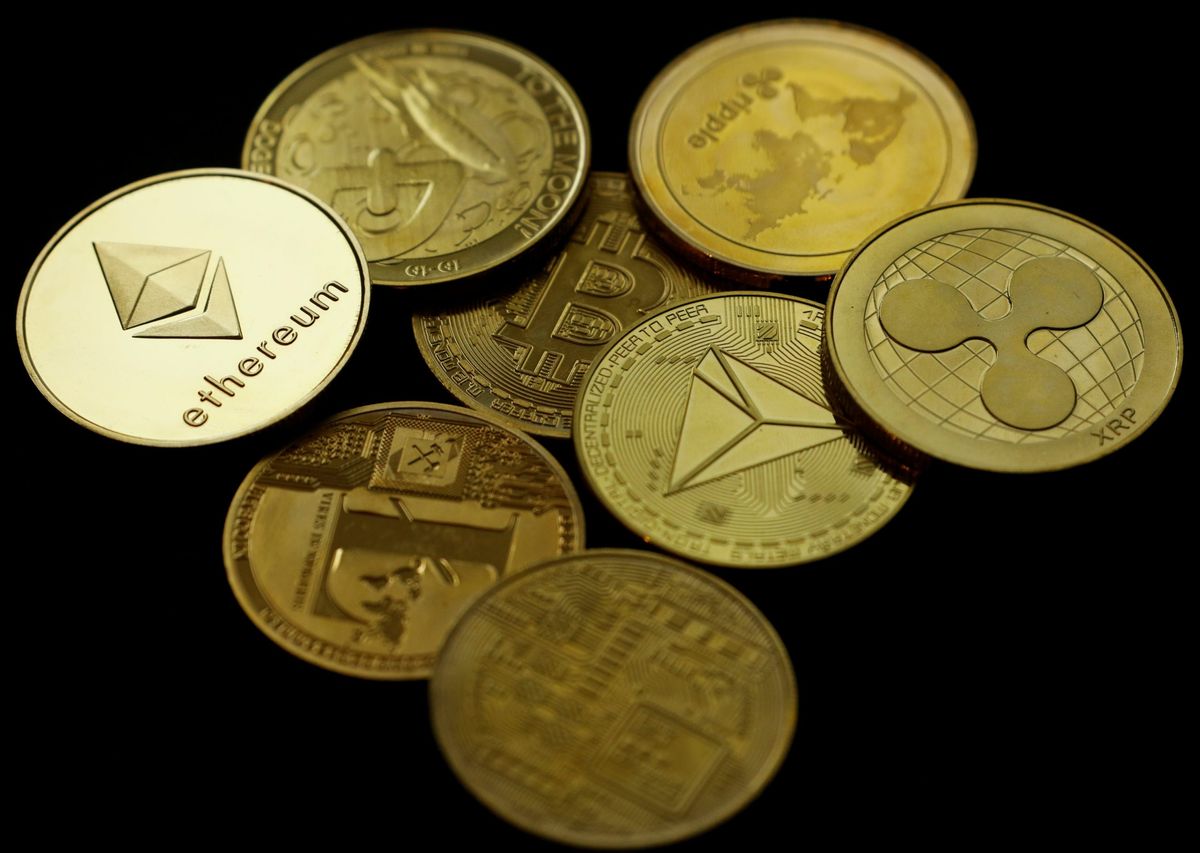Bitcoin ETFs are nearly here, but what does that mean?

A few minutes every morning is all you need.
Stay up to date on the world's Headlines and Human Stories. It's fun, it's factual, it's fluff-free.
“Good-faith actors have been speculating on the value of gold and silver for thousands of years. Right now, we just don’t have enough investor protection in crypto. Frankly, at this time, it’s more like the Wild West.”
What does the SEC think of crypto?
- It’s no secret that the United States Securities and Exchange Commission (SEC) hasn’t exactly responded well to cryptocurrencies.
- It’s mainly due to the biggest appeal to crypto for many: decentralization.
- The decentralized network allows consumers the ability to trade without relying on traditional banking.
- But with this, the decentralization has also opened up some problems for regulators like the SEC, with SEC Chair Gary Gensler, who took office in April, staying quiet on the matter for several months.
- And, after months of no direct response regarding his opinions on crypto, Gensler finally opened up and compared crypto to the “Wild West."
- “If you want to invest in a digital, scarce, speculative store of value, that’s fine,” Gensler said during a speech at the Aspen Security Summit in early August of this year. “Good-faith actors have been speculating on the value of gold and silver for thousands of years. Right now, we just don’t have enough investor protection in crypto. Frankly, at this time, it’s more like the Wild West.”
What do Gensler’s comments mean?
- While there are some benefits to the deregulated nature of crypto, some risks also come into play.
- Back when currencies were backed by gold and before there was the national US dollar, banks issued their own currencies, which they sometimes refused to redeem for their estimated value in gold or silver meaning that people were holding nothing more than valueless paper.
- Sometimes, crypto can leave people in a similar situation. There are nearly 7,000 cryptocurrencies on the market, and not all of them carry their weight in gold.
- Not only do people lose money from investing in worthless shitcoins (yeah, it’s an actual term), but crypto is highly vulnerable to theft and criminal activity due to its untraceable nature.
- As of October, 32 crypto-related breaches have occurred in 2021, totaling US$2.99 billion in losses in a market with the value of a small country at US$2 trillion.
- So, it’s not that Gensler doesn’t like crypto; he wants to regulate it a bit more so that there isn’t as much uncertainty with investing in crypto.
So, the SEC does want to support crypto?
- Right now, the majority of crypto mining has occurred in the US and China, and both countries are having to take hard stances on what the future of crypto is for them.
- China has made its position known by outright banning the currency, but the US seems more open to adopting and regulating crypto.
- The US’ first bitcoin futures exchange-traded fund (ETF) is set to begin trading this week, under the ticker “BITO." While this hasn’t been formally approved by the SEC, it is important to know that there might never be a formal approval, but it’s still allowed to be traded.
- This basically means that you can indirectly access the cryptocurrency market by investing in Bitcoin futures – an agreement to buy and sell the asset later at an agreed upon price.
- You can think of this ETF as rather than just betting on one horse on the track, you’re instead putting that sum of money on all the horses at the same time. So, it’s hard for you to lose all your money, because there’s always going to be a winning horse.
- Right now, the way crypto fluctuates, it’s like if you betted on one horse that consistently got injured and pulled to the side anytime someone tweeted something mean about it, setting it back several minutes in the race.
What are experts saying about the ETF?
- While it’s only speculation at this point whether or not the SEC will give this crypto ETF the greenlight, the SEC further fueled speculation after tweeting out some advice.
- “Before investing in a fund that holds Bitcoin futures contracts, make sure you carefully weigh the potential risks and benefits,” tweeted the SEC.
- The rumors were enough to push Bitcoin to new heights as the currency surpassed US$60,000 per coin. Anto Paroian, chief operating officer at crypto hedge fund ARK36, also believes that Bitcoin will continue to grow with the news of the ETF.
- “Now, after consolidating for a long time in the $40K range, Bitcoin seems much better prepared for another big move upward,” Paroian wrote. “If that happens, Bitcoin will likely go on to test its ATH (all-time high) and there’s a high probability it will break it.”
- Dan Morehead, CEO of asset manager Pantera Capital, is a bit more worried about the ETF as he believes that the news of the ETF’s approval could actually devalue Bitcoin.
- “Will someone please remind [me] the day before the bitcoin ETF officially launches? I might want to take some chips off the table,” wrote Morehead.
What’s next?
- At this point, anything other than what Gensler says is purely speculation.
- Gensler has also said that the SEC has received dozens of ETF filings and that the commission is currently reviewing all of them.
- Should a crypto ETF become a reality, some of the “Wild West” aspects of crypto will fade away as the coins become more regulated and mainstream under the SEC.
You drive the stories at TMS. DM us which headline you want us to explain, or email us.




Comments ()